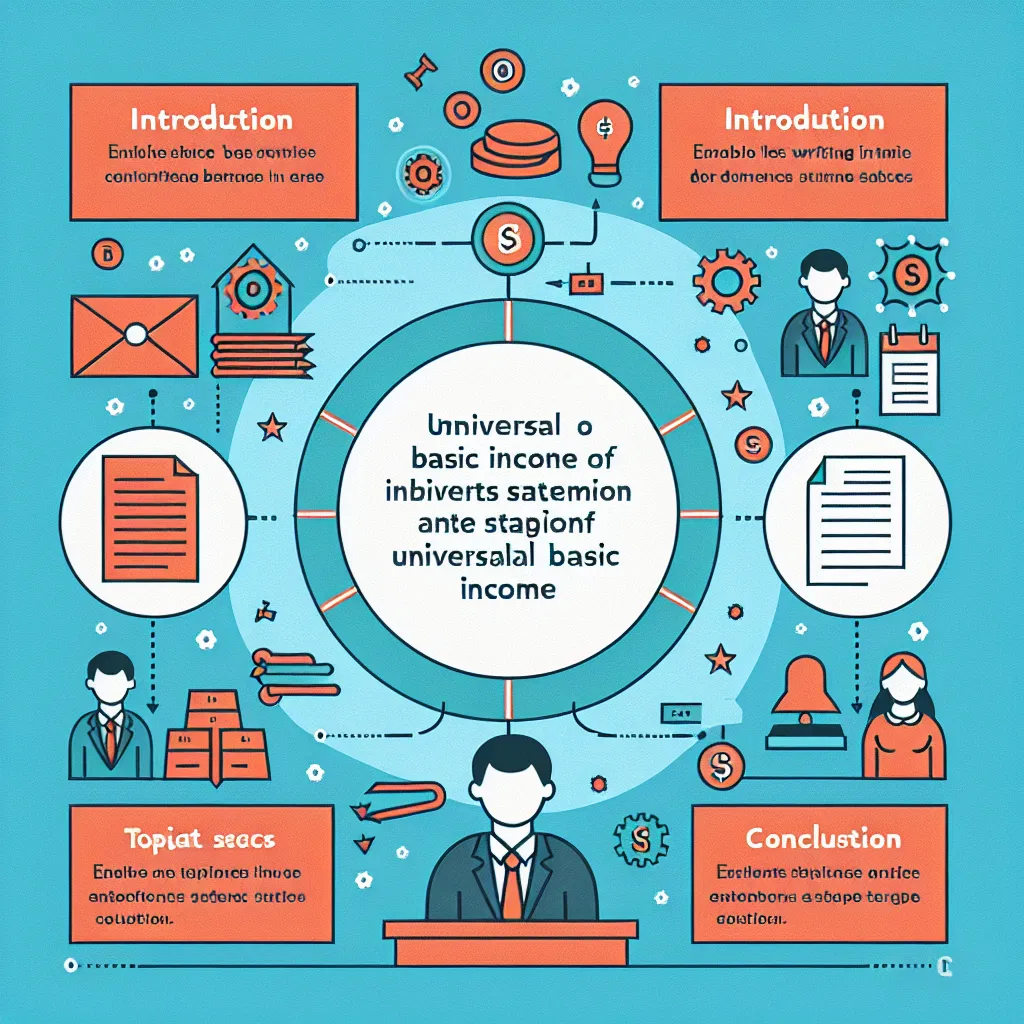Automation and its impact on low-income jobs is a topic that has gained significant attention in recent years. As technology continues to advance, it’s becoming increasingly important for IELTS test-takers to be well-versed in this subject. Based on past exam trends and current relevance, we can anticipate that questions related to the effects of automation on low-income jobs will likely appear in future IELTS Writing Task 2 prompts.
Nội dung bài viết
Let’s explore a sample question and analyze how to craft compelling essays for different band scores.
 Automation impact on low-income jobs
Automation impact on low-income jobs
Sample IELTS Writing Task 2 Question
Some people believe that the increasing use of automation in various industries will lead to widespread job losses, particularly for low-income workers. Others argue that automation creates new opportunities and improves overall economic productivity. Discuss both views and give your own opinion.
Analyzing the Question
This question requires you to:
- Discuss the negative impacts of automation on low-income jobs
- Explore the potential benefits and opportunities created by automation
- Provide your personal opinion on the issue
Remember to address all parts of the question and support your arguments with relevant examples and explanations.
Sample Essay 1: Band 8-9 Response
The rapid advancement of technology has sparked a heated debate about the impact of automation on the job market, particularly for low-income workers. While some argue that increased automation will lead to widespread unemployment, others contend that it will create new opportunities and boost economic productivity. In my opinion, while automation does pose challenges for certain sectors, its overall impact can be positive if managed properly.
Those who express concern about automation often point to the vulnerability of low-skilled jobs. Indeed, many routine tasks in manufacturing, retail, and service industries are increasingly being performed by machines and algorithms. For instance, self-checkout kiosks in supermarkets and automated assembly lines in factories have already replaced numerous human workers. This trend could potentially lead to significant job losses, particularly among those with limited education or specialized skills, exacerbating income inequality and social tensions.
On the other hand, proponents of automation argue that it drives innovation and creates new employment opportunities. Historically, technological advancements have led to the emergence of entirely new industries and job categories. For example, the rise of e-commerce has generated demand for roles such as data analysts, digital marketers, and logistics specialists. Moreover, automation can enhance productivity and reduce costs, potentially leading to economic growth and increased prosperity for society as a whole.
In my view, while the concerns about job displacement are valid, the benefits of automation can outweigh the drawbacks if appropriate measures are taken. Governments and businesses should focus on reskilling and upskilling programs to help workers adapt to the changing job market. Additionally, investing in education that emphasizes creativity, critical thinking, and interpersonal skills – areas where humans still outperform machines – can help prepare the workforce for future challenges.
In conclusion, automation’s impact on low-income jobs is a complex issue with both potential risks and opportunities. By implementing proactive policies and fostering a culture of lifelong learning, we can harness the benefits of automation while mitigating its negative effects on vulnerable workers. Ultimately, the key lies in managing this technological transition in a way that promotes inclusive economic growth and social stability.
(Word count: 329)
Analysis of Band 8-9 Essay
This essay demonstrates excellence in several key areas:
-
Task Response: The essay fully addresses all parts of the question, discussing both viewpoints and providing a clear personal opinion.
-
Coherence and Cohesion: The essay is well-organized with clear paragraphing and effective use of cohesive devices (e.g., “On the other hand,” “Moreover,” “In conclusion”).
-
Lexical Resource: The writer uses a wide range of vocabulary accurately and appropriately (e.g., “exacerbating,” “vulnerable,” “proactive policies”).
-
Grammatical Range and Accuracy: The essay showcases a variety of complex sentence structures with minimal errors.
-
Development of Ideas: Each point is well-developed with relevant examples and explanations.
Sample Essay 2: Band 6-7 Response
The increasing use of automation in different industries has become a hot topic of discussion. Some people think it will cause many job losses, especially for low-income workers, while others believe it will create new chances and improve the economy. This essay will discuss both views and give my opinion.
On one hand, automation can lead to job losses for many low-income workers. Machines and computers are now able to do many simple tasks that humans used to do. For example, in factories, robots can now assemble products faster and more accurately than human workers. This means that many people who work in manufacturing might lose their jobs. Similarly, in supermarkets, self-checkout machines are replacing some cashiers. This trend could make it harder for people with low skills to find work.
On the other hand, automation can also create new opportunities and help the economy grow. When businesses use machines to do simple tasks, they can produce more goods and services at a lower cost. This can lead to economic growth and create new types of jobs. For instance, as more companies use advanced technology, they need people who can design, build, and maintain these systems. Additionally, automation can free up workers to focus on more complex tasks that require human skills like creativity and problem-solving.
In my opinion, while automation does pose challenges for some workers, its overall impact can be positive if managed correctly. I believe that governments and companies should invest in training programs to help workers learn new skills. This way, people can adapt to changes in the job market and find new opportunities. Also, education systems should focus on teaching skills that are hard for machines to replicate, such as critical thinking and communication.
To conclude, automation has both positive and negative effects on low-income jobs. While it may cause some job losses, it also has the potential to create new opportunities and improve the economy. The key is to prepare workers for these changes through education and training.
(Word count: 330)
Analysis of Band 6-7 Essay
This essay demonstrates good writing skills but falls short of the highest band scores:
-
Task Response: The essay addresses all parts of the question, but the ideas could be more fully developed.
-
Coherence and Cohesion: The essay is generally well-organized, but the use of cohesive devices is less sophisticated than in the Band 8-9 essay.
-
Lexical Resource: The vocabulary used is appropriate but less varied and precise compared to the higher band essay.
-
Grammatical Range and Accuracy: The essay uses a mix of simple and complex sentences with generally good accuracy, but lacks the sophistication of the Band 8-9 essay.
-
Development of Ideas: Ideas are relevant and supported with examples, but could be elaborated further.
Key Vocabulary to Remember
-
Automation (noun) /ˌɔːtəˈmeɪʃn/ – The use of machines or computers to do work that was previously done by people.
-
Displacement (noun) /dɪsˈpleɪsmənt/ – The act of forcing something or someone out of their usual position.
-
Reskilling (noun) /riːˈskɪlɪŋ/ – The process of learning new skills so you can do a different job, or of training people to do a different job.
-
Upskilling (noun) /ˈʌpˌskɪlɪŋ/ – The process of learning new skills or of teaching workers new skills.
-
Productivity (noun) /ˌprɒdʌkˈtɪvəti/ – The rate at which goods are produced or work is completed.
-
Innovation (noun) /ˌɪnəˈveɪʃn/ – The introduction of new ideas, methods, or things.
-
Exacerbate (verb) /ɪɡˈzæsəbeɪt/ – To make a bad situation even worse.
-
Interpersonal (adjective) /ˌɪntəˈpɜːsənl/ – Relating to relationships or communication between people.
-
Proactive (adjective) /prəʊˈæktɪv/ – Taking action by causing change and not only reacting to change when it happens.
-
Inclusive (adjective) /ɪnˈkluːsɪv/ – Including all people, things or ideas in a group or situation.
Conclusion
The effects of automation on low-income jobs is a complex and relevant topic for IELTS Writing Task 2. As technology continues to advance, it’s likely that similar questions will appear in future exams. Some potential variations might include:
- The role of government in managing the transition to an automated workforce
- The impact of automation on specific industries (e.g., manufacturing, retail, or service sectors)
- The ethical implications of replacing human workers with machines
To prepare effectively, practice writing essays on these topics, focusing on developing well-structured arguments supported by relevant examples. Remember to address all parts of the question and provide a clear personal opinion when required.
We encourage you to try writing your own essay on the sample question provided in this article. Share your essay in the comments section below for feedback and discussion with other learners. This active practice will help you improve your writing skills and prepare you for success in the IELTS Writing Task 2.


